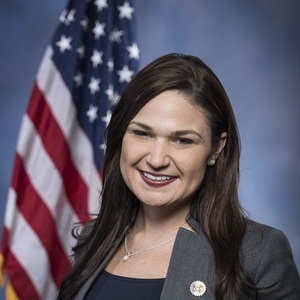GAO to investigate EPA's misuse of small refinery exemptions

January 10, 2020
BY The Office of Rep. Abby Finkenauer
Rep. Abby Finkenauer, D-Iowa, announced the Government Accountability Office will begin an investigation into the U.S. EPA’s granting of small refinery exemption waivers to the Renewable Fuel Standard. This investigation is a result of Finkenauer leading a bipartisan request to the GAO.
“Granting more than 80 small refinery exemption waivers isn’t just something this administration can sweep under the rug,” Finkenauer said. “Part of my job is making sure that Iowans’ voices are heard, and we will continue to fight against these repeated attacks on the Renewable Fuel Standard. I am grateful my colleagues, on both sides of the aisle, joined together to put pressure on the administration and find out why decisions are being made that protect Big Oil’s profits while devastating Iowa’s farmers and biofuel producers.”
Last August, Finkenauer sent a bipartisan letter to the GAO asking for an investigation of the EPA.
She was joined in sending the letter to GAO by members of the House Biofuels Caucus, including nearly a dozen representatives.
A copy of the letter can be found here.
Finkenauer and the representatives are asking for the GAO to investigate the EPA’s approval process for small refinery exemption waivers; the role of the U.S. DOE in reviewing and scoring waiver applications; and what factors are being considering in the assessment and approval of these applications.
Advertisement
Last year, the EPA announced it granted 31 new small refinery exemption waivers. Under the Trump administration, small refinery exemption waivers have more than quadrupled from the previous administration.
Between 2013 and 2015, the EPA granted no more than eight waivers for any given year. The current administration retroactively approved 19 waivers for 2016, then proceeded to grant 35 waivers in 2017, and now 31 waivers for 2018—exempting a total of nearly 4 billion gallons of fuel from the RFS. The number of waivers approved has grown exponentially with major corporations like ExxonMobil and Chevron among those that received these economic hardship exemptions. This raises real questions about the review process and what other factors that the EPA is considering in approving the waivers.
Advertisement
Related Stories
The U.S. EPA on July 8 hosted virtual public hearing to gather input on the agency’s recently released proposed rule to set 2026 and 2027 RFS RVOs. Members of the biofuel industry were among those to offer testimony during the event.
The USDA’s Risk Management Agency is implementing multiple changes to the Camelina pilot insurance program for the 2026 and succeeding crop years. The changes will expand coverage options and provide greater flexibility for producers.
President Trump on July 4 signed the “One Big Beautiful Bill Act.” The legislation extends and updates the 45Z credit and revives a tax credit benefiting small biodiesel producers but repeals several other bioenergy-related tax incentives.
CARB on June 27 announced amendments to the state’s LCFS regulations will take effect beginning on July 1. The amended regulations were approved by the agency in November 2024, but implementation was delayed due to regulatory clarity issues.
SAF Magazine and the Commercial Aviation Alternative Fuels Initiative announced the preliminary agenda for the North American SAF Conference and Expo, being held Sept. 22-24 at the Minneapolis Convention Center in Minneapolis, Minnesota.
Upcoming Events










